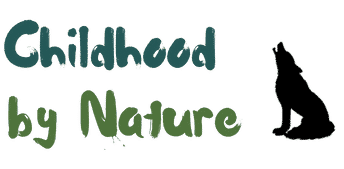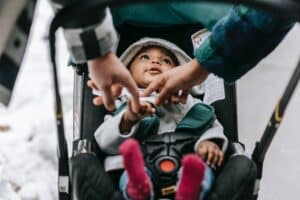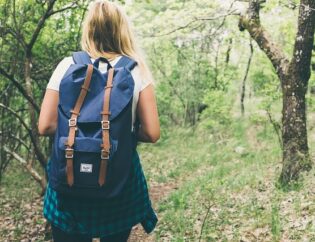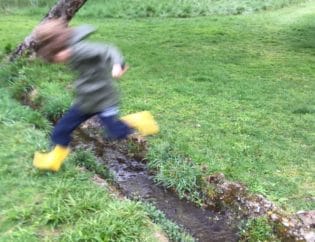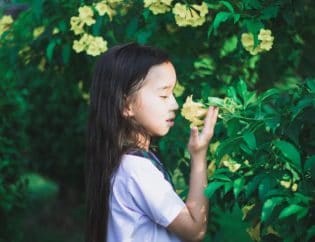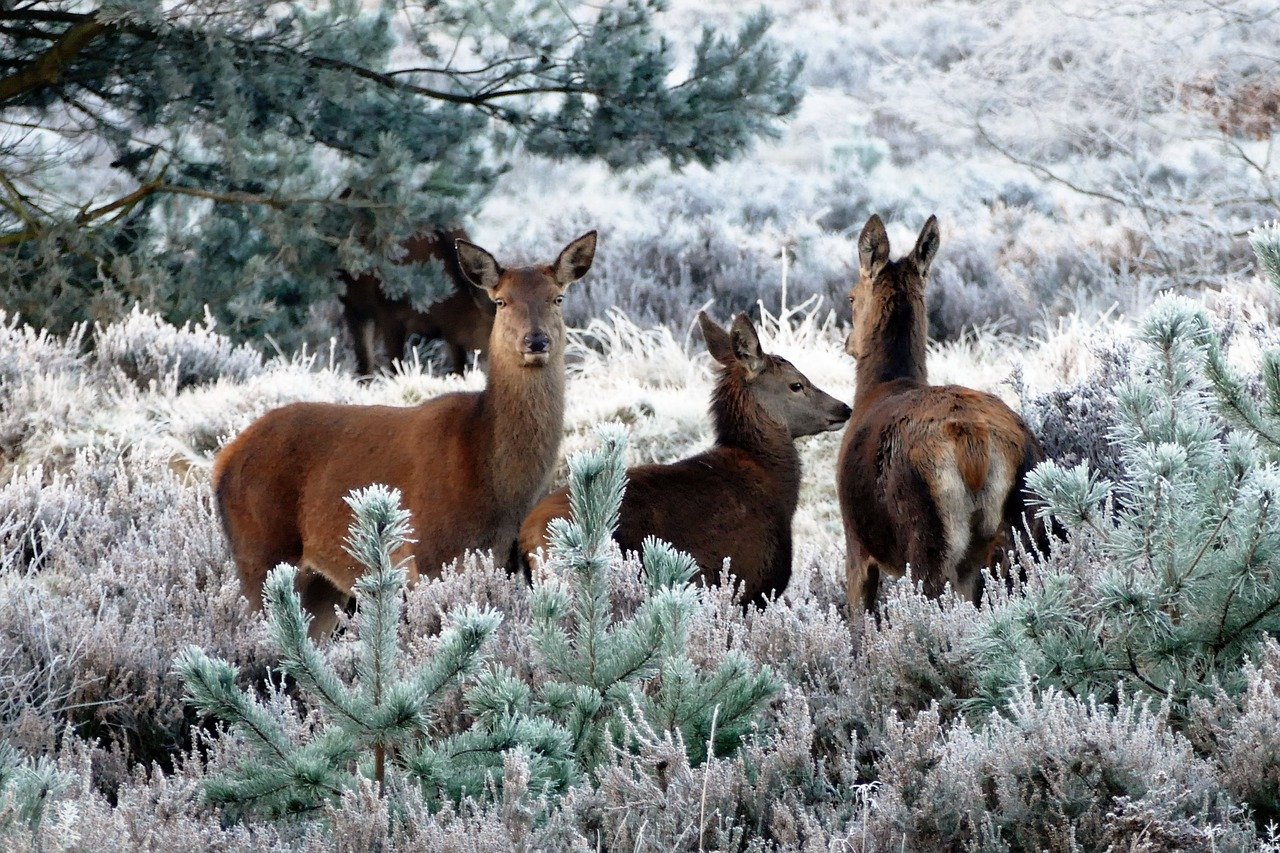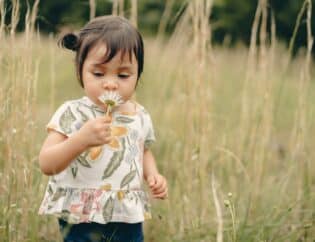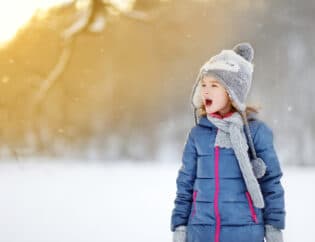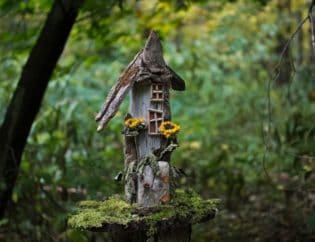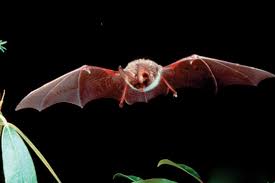
Nature journaling, animal tracking, bird watching. All are amazing activities to help the young naturalist nurture a lifelong relationship with nature. But how about the very, very young naturalist? Is nature engagement important for babies?
Actually, and you might not be surprised to hear this from us, nature is one of the best things to give to a baby. Whether wearing baby on a walk outside, strolling through a zoo or garden, picnicking in a park, exploring at the beach, or just smelling flowers in your backyard, there are so many ways to bring baby to nature in a safe way. Though the skills of a young naturalist will come later on, just being in nature will help babies develop in the most healthy ways. Read on to learn more.
We’re going to start with the benefits before baby has even arrived. Because, like most things during pregnancy, what you do before baby arrives will have an effect on baby’s health. Ideally, expecting moms should expose themselves to as much nature as possible during pregnancy. For one thing, nature calms us. And a calm mother is a calm baby. Interestingly, studies find that pregnant mothers who live in greener areas and close to green spaces give birth to high-weight babies. And don’t skimp out on nature during the birth experience! Just looking at nature images during labor can have a positive benefit for both mother and baby.
Having a new baby is magical but, let’s be honest, a busy time. Of course, taking a baby anywhere requires extra effort. There’s bundling baby up to keep him or her warm in colder weather. There’s gear for hiking with the baby. And always the necessary accoutrements in the trusty diaper bag. It’s often easier to just stay indoors. But don’t skimp out on nature. With a myriad of mental, physical, sleep, and sensory benefits, nature should be an essential element in a baby’s life.
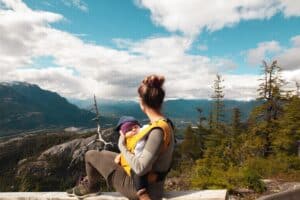
Sensory Smorgasbord
We’ve written previously about the sensory benefits of nature for children. This is true for babies too. Sensory play includes any activity that stimulates your young child’s senses: touch, smell, taste, movement, balance, sight, and hearing. Research shows that sensory play builds nerve connections in the brain’s pathways, which lead to the child’s ability to complete more complex learning tasks. Sensory play also supports language development, cognitive growth, fine and gross motor skills, problem-solving skills, and social interaction.
Nature of course is filled with sensory information that babies and children need for their developing brains. When you’re outside with your baby, remember all of the senses and let baby look, listen, smell, touch, balance as much as they can. Let them experience a prickly pinecone or soft moss. A crow’s caw. A soft breeze. Squishy mud. A fir tree. Warm sunshine. Cold snow. Light rain on their face. Ah, a sensory buffet. Consider adding a sensory trail or garden to your backyard if you can. The benefits will far outweigh the work!
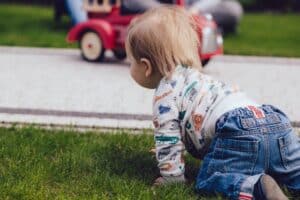
The Language of Nature
While giving mini naturalists lessons is a bit early for the baby stage, there is no reason why you shouldn’t help foster baby’s language development by naming many of the wonderful things he or she sees in nature. Bees, flowers, trees, squirrels— what amazing friends surround baby in nature. Talking to your baby and naming objects in their world helps promote early language development. But familiarity with the natural world also helps to reduce the fear many children and adults have of nature. The more we know and understand nature, the less we fear it. So helping your baby develop a comfort level with butterflies, just as they are around Fisher Price’s latest gadget, will bring in lifelong benefits.
Moving with Nature
If you want to help your baby develop their motor skills, doing so in an outdoor environment can help them progress. Children acquire most of their basic motor skills before the age of five with much of the progress made within the first couple of months of life. Time outdoors helps facilitate the development of many of those skills even for babies, who benefit from observing others running around and playing. When outdoor playspaces are given a natural makeover with natural elements such as trees, sand, logs, sticks, stones, bark, and hay, as well as structures such as bridges and platforms, infants and toddlers show more variety in their movement and physical activities.
Immunity Booster
More variety in nature also includes more variety with regard to microbes. Which is excellent for baby's immune system! We now understand that, rather than protecting babies and children from germs, we should encourage healthy exposure. Microbes in nature boost immune system development. Rather than keeping baby in a sterile indoor environment, take them outside so they can build stronger immune systems for life.
Calming Nature
We all appreciate the benefits of sleep for babies. You may have noticed that your baby is a better sleeper after he or she has spent the day outdoors. You’re not imagining it. Research confirms that time in the natural sunlight helps establish good sleep patterns for babies. In the study, babies younger than 13 weeks who slept well at night spent twice as much time in the sunlight than babies who did not, possibly because babies spending time outside established circadian rhythms sooner.
As baby gets older, keep outdoor activities going! Research shows outdoor activities may be more effective at promoting early child development than indoor activities. Researchers who looked at the influence of outdoor activities on the development of one- to three-year-old children attending nursery schools in Italy found that children in the outdoor group showed significantly greater improvement in most of the developmental areas (cognitive, emotional, social, fine motor skills) than children in the traditional education group.
So get baby outside and often. And don’t stop. Nature offers benefits for any age.
